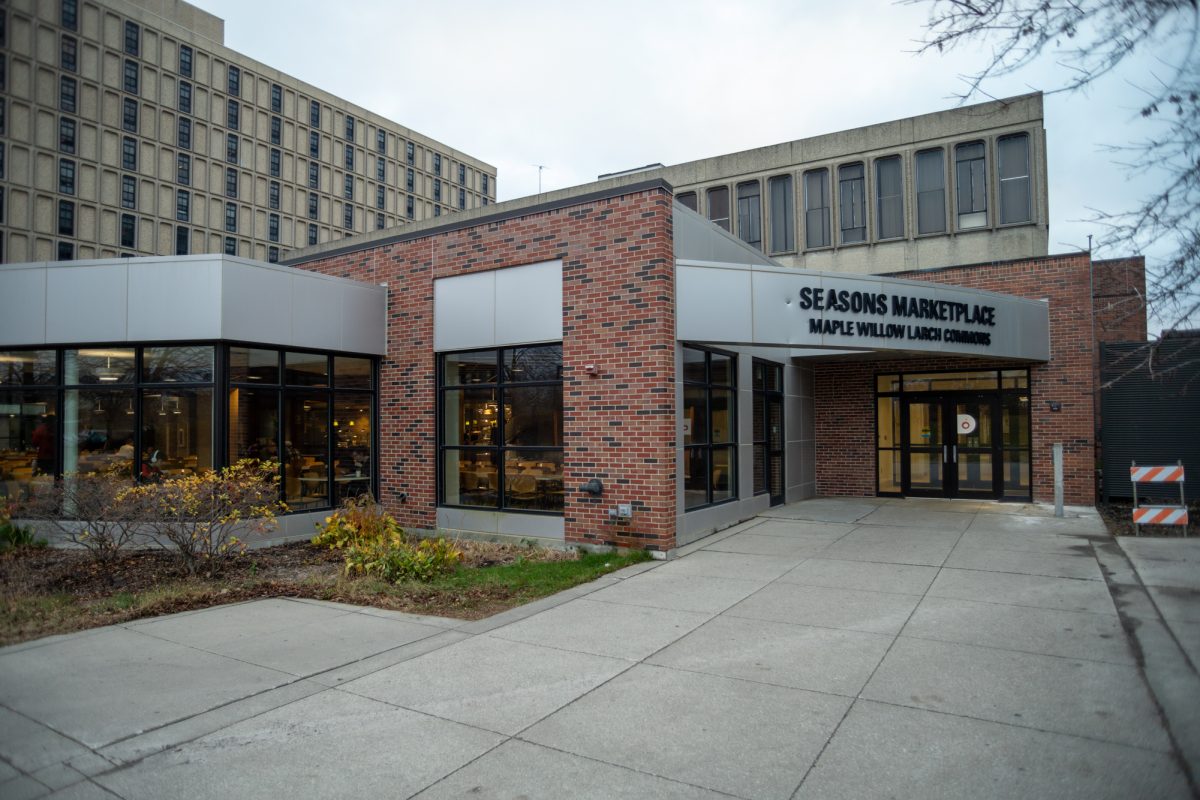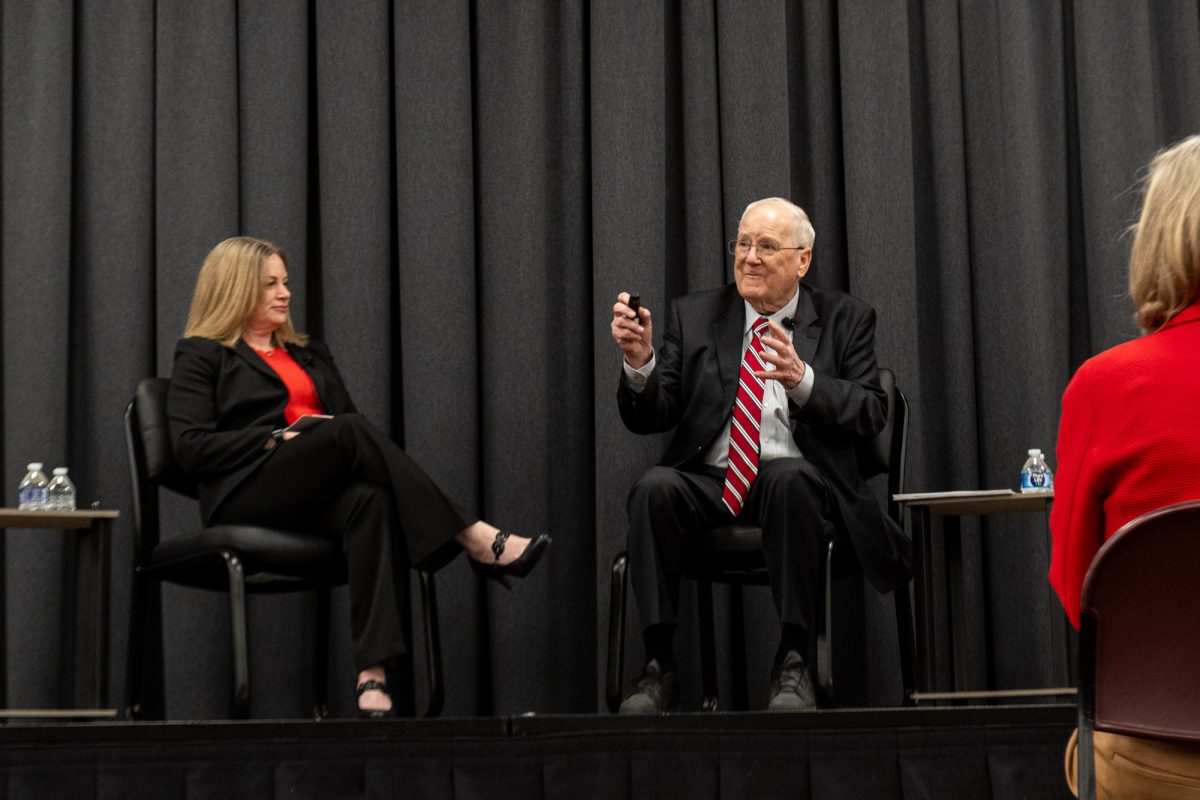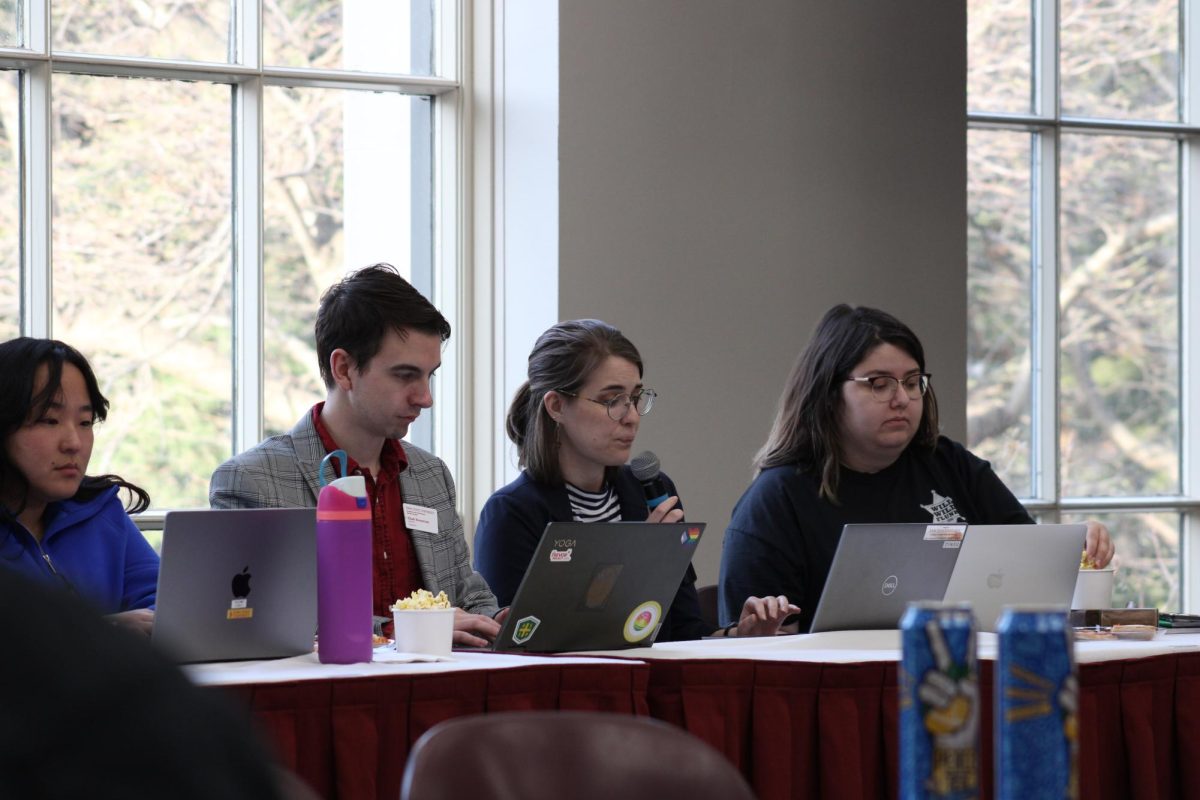Audit report suggests Iowa Democrats must make changes, but Iowa caucuses will likely stay
The app that was supposed to help caucus officials tabulate results from the Iowa Democratic caucuses malfunctioned on caucus night, leading to delays in the reporting of results.
December 17, 2020
Despite recently renewed attention and criticism of the Iowa caucuses and the state’s status as the first-in-the-nation presidential nominating contest, it’s likely the quadrennial tradition will continue, at least for now, according to political scientists at Iowa State University.
The renewed scrutiny and media coverage comes after the Iowa Democratic Party (IDP) on Saturday released the final report of the audit the party commissioned shortly after the 2020 caucuses. The audit, conducted by former Iowa Attorney General Bonnie Campbell and former federal District Attorney Nick Klinefeldt, chronicled the series of events that led to the chaotic breakdown of result reporting on caucus night and provided recommendations for improving the process in the future.
While the report placed blame on both the state party and the Democratic National Committee (DNC) for the chaotic event, most news media reports have focused on the DNC’s involvement.
“I commend [the Iowa Democratic Party] for wanting to do this kind of retrospective and try to figure out what went wrong,” said Karen Kedrowski, professor of political science and director of the Carrie Chapman Catt Center for Women and Politics. “I also commend the consultants for putting out a very frank report.”
Along with providing needed insight into improvements that will avoid a repeat of the 2020 caucus, commissioning a report that was critical of its own organization could help the IDP avoid accusations of biasing the report against the DNC.
“In looking at who was conducting the audit, who was publishing the audit, the information seems to have come from an unbiased source,” said Kelly Shaw, an associate teaching professor of political science at Iowa State University who teaches a course on Iowa politics. “It’s telling that the DNC gave instructions not to talk to press and to the committee.”
Many media reports immediately after, and ever since, the caucus night have identified the app the IDP contracted for development through Shadow, Inc., a left-leaning political technology company that developed a similar app for Nevada’s state Democratic Party, as a major source of chaos on caucus night.
Rather than placing blame on Shadow or the app itself, the audit report identified the intrusion of the DNC into the development process as the root cause of the confusion that night, as well as the IDP’s response to those intrusions. According to the report, in the initial stages of development, the DNC required the use of its own approval process for the developer, Shadow. The IDP, rather than allowing Shadow to continue development while the DNC deliberated, halted the process, delaying the rollout of the app by months.
In addition, days before the caucuses were held, the DNC insisted that Shadow create a separate back-end process that would allow the DNC real-time access to the app’s reported results. This process ultimately failed, causing many of the discrepancies seen reported throughout the night.
The delay in rolling out the app allowed the IDP a much shorter time to train precinct chairs, the local volunteers who were responsible for reporting the results, in using the app. Out of more than 1,700 precincts, ultimately fewer than 500 used the app to report results.
Compounding the problems users had with the app were problems in what the IDP calls the “boiler room,” or the room where volunteers were stationed to accept phone calls from precincts and the public with results and about the caucuses more generally. When precinct captains gave up on using the app, they began to call in their results. However, the boiler room was set up with only 48 phone lines, and three undifferentiated phone numbers, two of which were publicly available. This led to congestion as precincts, the public and the news media all called into the boiler room simultaneously seeking or providing information.
The report placed blame for failures with the boiler room squarely on the state party, concluding that a lack of infrastructure, poor communication and unclear or nonexistent backup systems caused chaos among volunteers, resulting in widespread confusion.
“From what I understand…people in other rooms didn’t know how bad it was in the boiler room,” Kedrowski said.
This was not the first year the Iowa caucuses have had problems. In 2012, inconsistent vote tallies in the Republican caucus led to victory being called for Mitt Romney and later revised to show Rick Santorum as the winner.
“The Iowa caucus is all about horse race coverage, how well you do,” Shaw said. “A lot of this trickles down in fundraising and media coverage.”
Issues arose again in 2016, as reports arose of precincts being decided for Hillary Clinton or Bernie Sanders on a coin toss. Despite having little impact on the awarding of national delegates, that, among other organizational issues, cast a pall over the entire process and led the DNC to reexamine its caucus rules for 2016.
While the DNC declined to participate in interviews or otherwise cooperate with the attorneys compiling the report, the audit suggested that the DNC had, through rule changes for caucus processes, sought to make holding caucuses more difficult and encourage states to move to a primary-based system. Many also suggest Iowa is not similar enough to the demographics of the rest of the country.
“Persons on both sides argue that Iowa shouldn’t have the weight it has,” Shaw said. “Iowa is terribly white, terribly rural, terribly nonrepresentative.”
Kedrowski also pointed out that, for all the criticism about caucuses being undemocratic, being able to gather with one’s neighbors and peers, discuss political candidates and often meet the candidates themselves directly, makes them inherently very democratic. Those kinds of discussions don’t take place in the same way in a primary, she said.
Both professors suggested Iowa was very unlikely to make the switch to a primary system, largely because doing so would threaten the state’s first-in-the-nation status.
“Iowa needs to keep the caucuses to stay first in the nation,” Kedrowski said. “It’s also big business for Iowa that comes pouring into the economy.”
The Iowa caucuses remain important, both for the state and as part of the presidential nominating process. Neither Shaw nor Kedrowski sees them going away prior to the 2024 election cycle.
“I’d be surprised if the first-in-the-nation status is taken away, but I’m not attuned to internal discussions,” Shaw said. “But the margin of error is narrow. The parties are not likely to take it away, but the Iowa caucuses are on the last straw.”
Shaw and Kedrowski both said implementing the recommendations of the report are critical to Iowa maintaining the caucuses long term.
“If they can use the report with very concrete and clear recommendations for improvements and implement them, then they might be able to host caucuses again,” Kedrowski said.
Shaw highlighted the need for additional training for volunteers, particularly ensuring the precinct chairs who are responsible for conducting the caucus counts and reporting the results to know the rules and are familiar with the process.
“In typical Iowa fashion, people applaud the volunteers who are willing to go out and take a leadership role,” Shaw said. “But when you think about how complicated it is…it’s been a disaster waiting to happen.”
Implementing suggested changes comes with a caveat, Kedrowski said. The recommended changes assume that the DNC keeps in place a majority of the rules that governed the 2020 caucuses.
“The DNC was really fighting the last war to address the previous iteration,” Kedrowski said. “They’re probably going to do something like that again…and Iowa is going to have a pretty big hill to climb.”
The state party does, however, have some time to get such affairs in order.
“They have to get it right three and a half years from now,” Shaw said. “Critical eyes are on the state.”






